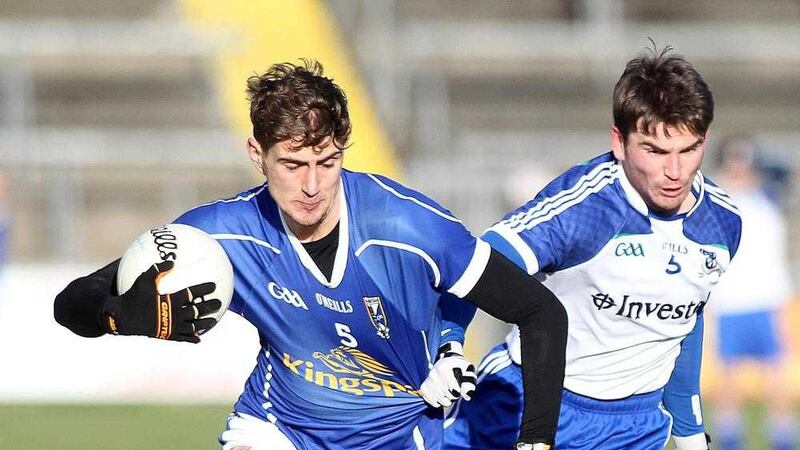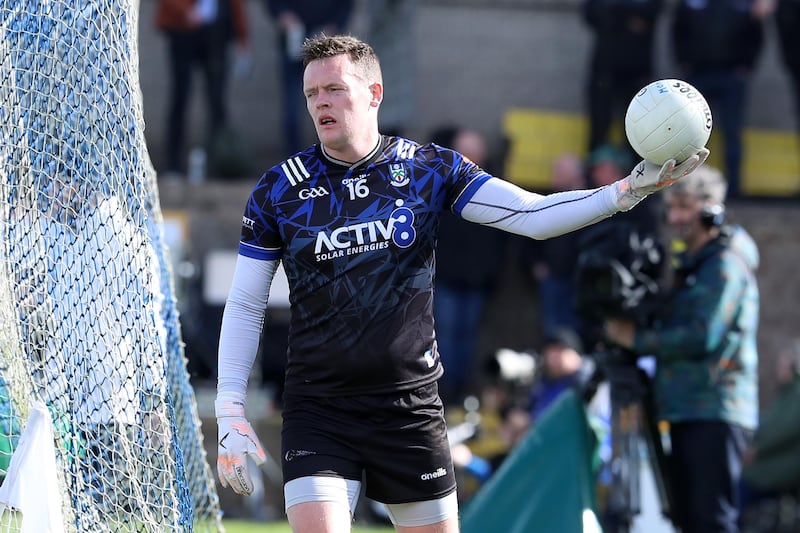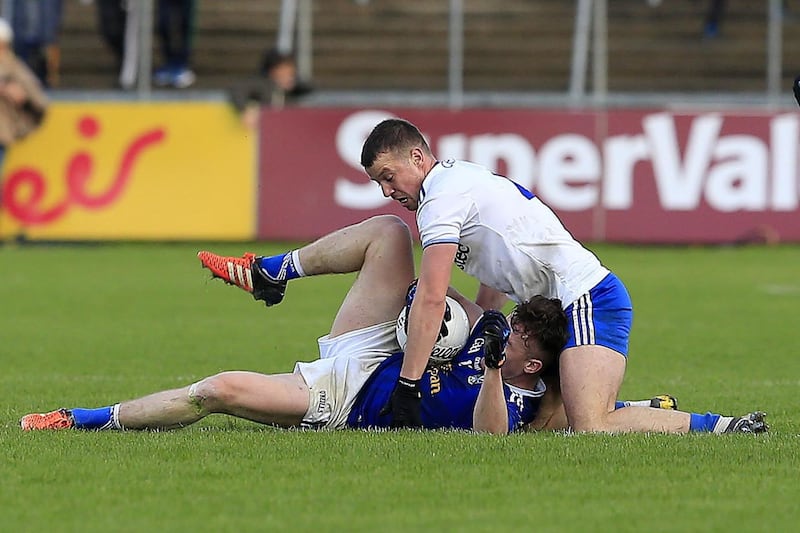CAVAN and Monaghan men tend to see things differently and players Killian Clarke and Dessie Mone certainly have contrasting views on the mark.
Breffni Blue Clarke seems to be one of the few players who is content with the change, commenting: "I think it's good enough, really. I played a wee bit with the International Rules last year, was training with them and I thought it was a good enough idea.
"A lot of teams go short now, which nullifies having a midfield at all - you can play a running-style midfielder rather than a catcher. It's a skill in its own, catching, timing the kick-out to make the catch and so on. I think it'll be interesting to see how we get on - on a trial basis, just give it a go."
The 22-year-old does stress the need for a period of transition, pointing out: "A lot of the rules are tried out first. It would be a bit harsh to throw it into the Championship this year. There's too much pressure on to be changing the rules at this stage.
"Maybe if they held it off to next year, they could find any faults in it, if there are faults in it, and maybe develop the rule a bit better."
Monaghan man Mone, a PE teacher at Largy College in Clones, does agree on the need for a trial period, saying: "It's a funny one. They tried it out before [in the 2010 pre-season and National Football League], so they could have tried it out again before bringing it in. They seemed to rush into making a decision.
"I'm not too sure what they're trying to achieve. The keepers can still kick it out short if they want. The keepers will still want a 100 per cent record with kick-outs. Another trial run would be the safer option."
Clarke quibbles with that line of thinking, suggesting "a manager will look at his team and see if he has a fielder capable of winning that ball. If the percentages of him catching the ball are high, I'd say they'd be letting it in to him".
However, he does acknowledge many sides might not take that approach: "A lot of teams will play a running-style midfield and, if they have the defence set up where they're playing two sweepers, then they will have the men over in their back-line for the short kick-out.
"We played Tyrone this year and I don't think they kicked one ball out around the middle; every ball was out to a corner-back who was hugging the sideline. Most teams will push up on kick-outs, but if your team is going short, nearly half the teams are giving up the kick-outs and just retreating, then you're up against two or three sweepers covering the spaces and it's 'break us down, break us down, good luck to you'."
Unsurprisingly, defender Mone is thinking about ways to stop the man who takes the mark, saying: "It can be good, but if they go forward with the ball, can they be tackled?
"In Aussie Rules, if you go forward with the ball, the opponent is allowed to tackle the man on the ball. That didn't slow the game down, but the mark could slow the game down."
Clarke disagrees with that argument, contending: "I'm not too sure - a short kick-out slows the game down because it takes longer to get up the field.
"Once you go longer with the ball, you're 60 yards further up and, if you play advantage when you do win that mark, it's not going to slow it up much. It's only five seconds allowed before you kick the ball, it's a throw-up if you take any longer, so it won't be that big of a deal."
Clontribret clubman Mone concludes support for officials might improve matters more than the mark: "When making these new rules, they really should get feedback from players and referees more so than trying to come up with new rules for congress when they've no call to.
"The game is fine as it is; more help for referees would be better for the game."








